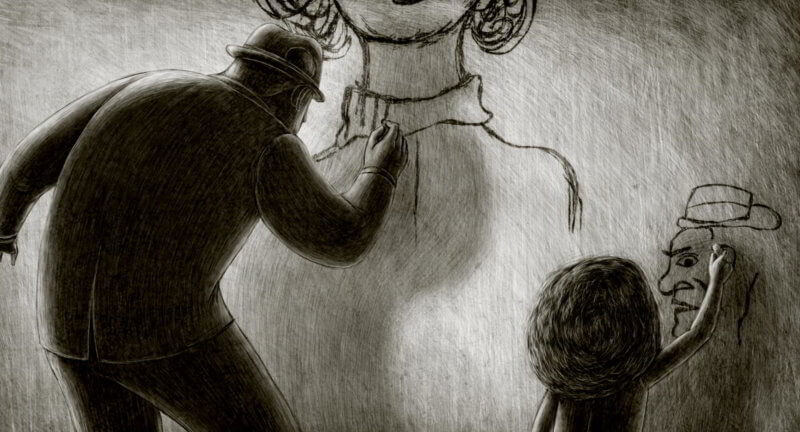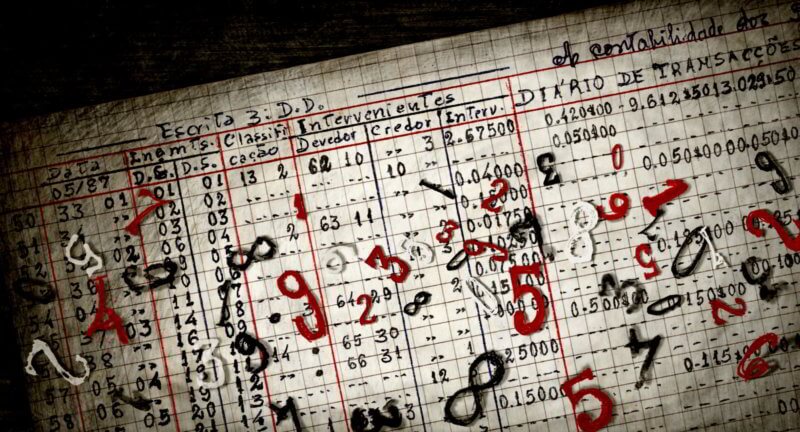Regina Pessoa on ‘Uncle Thomas: Accounting for the Days’
Seven years on from her last film Kali the Little Vampire (2012), Portuguese director Regina Pessoa has this month returned with the more directly-autobiographical Uncle Thomas: Accounting for the Days. Having debuted last week at Animafest Zagreb in Croatia, the film – a co-production of the National Film Board of Canada, Les Armateurs and Ciclope Filmes) is currently screening in competition at this year’s edition of the Annecy International Animated Film Festival with an official selection at Brazil’s prestigious Anima Mundi festival to follow next month. With Kali having effectively concluded a multi-award-winning trilogy of filmic musings on childhood that also included Regina’s debut short The Night (1999) and Tragic Story with Happy Ending (2005), Uncle Thomas this time examines her own childhood from the perspective of an adult looking back, with a focus on analysing her memories of a charming and idiosyncratic family member whose alternative approach to life and curious obsessions contributed significantly to the artist she herself would become.
In my previous films I would somehow take the point of view of the character. That’s why, with Kali, I needed to make peace with the theme of childhood; when the character dies, it’s his childhood that he has left behind and somehow he finds a place in the world. My intention with Uncle Thomas was to view this childhood in perspective, so it’s me seeing my childhood from the point of view of the adult I am now.
Somehow I lived with this freedom, that even when we didn’t have proper materials like pencils and paper it was possible to find solutions, so that’s how I started drawing. But my uncle had some manias as well; I always knew that he had a different personality and an obsession with numbers. These numbers and objects fascinated me as a child and I always had this intention to do something about uncle Thomas and how important he was for me. I found that, while he was not an ‘important person’, he was important to me. I wanted to show with my film that it isn’t necessary to be exceptional to be important to someone. This was my personal statement with this film.

Uncle Thomas: Accounting for the Days (NFB)
Thomas’s long-running obsessions around numbers manifested themselves in a wealth of materials he left behind, from tools and artifacts to diaries and notebooks filled with meticulous record-keeping and compiling. Rather than going down the route of reproducing these materials Regina was able to incorporate the real objects within the film in an evolution of her established style that extends to photographic and stop-motion techniques.
We normally used a lot of mixed-media in art school, but when I started animation I was doing 2D – okay, with a lot of textured visuals, but still 2D. But then I evolved, with Kali, to digital animation, still with a lot of texture but still just 2D. With Uncle Thomas I intended to figure out if it was possible to use my background with ‘things’ – real materials, the real objects that I kept from my uncle – with my 2D style that I’d developed, and also with what I’d learned from the use of digital media. My ambition was to combine all these languages in a coherent way, with all the materials I wanted to use. I can say that I’m pretty happy with the result, I really used a lot of techniques and they fuse well together. From my point of view, I’m satisfied.

Uncle Thomas: Accounting for the Days (NFB)
The driving force of the piece is arguably the most identifiable trait of the director’s style – appealing, playful character animation rendered with a great deal of consideration for volume and texture; particularly impressive is Regina’s infinitesimally-detailed line strokes that infuse each frame with depth and atmosphere rarely seen in full animation. As successfully producing the film required working with a team of animators, keeping this aesthetic approach consistent required having a specific system in place.
The textures for this film were done digitally. I developed a process where I prepared all the key drawings with all the textures that were important for my assistants to follow. The texture that covers the character also covers his volume and doesn’t go all over the place when it moves. I really tried to prepare my scenes well enough so that when I passed them to my assistants they would have no problem following what I had indicated. The way I work, the key drawings are very precise, so the texture can be duplicated for the in-betweens and changed only where it needs to be. So it’s somehow frame by frame but it’s like a ‘skin’ that is attached to the character.

Uncle Thomas: Accounting for the Days (NFB)
The narrative basis for the film is a personal letter Regina wrote to Thomas that explores not just her immense love and fondness for its recipient but also her awareness of his peculiarities and perceivable flaws of character. Either way the overall purpose of the film, as a celebration of the life of a kindred spirit and formative influence, is clear, touching and masterfully conveyed.
You can hear more about the making of the film and the work of Regina Pessoa in an upcoming episode of the Skwigly Animation Podcast.
Uncle Thomas: Accounting for the Days screens in Annecy 2019’s Short Films in Competition 3, which takes place at the following times/venues:
11/06 4:30pm – La Turbine
12/06 10:30am – Cinéma Pathé Pathé 1
12/06 2:00pm – Bonlieu Grande salle
12/06 9:00pm – Cinéma Pathé Pathé 1
13/06 4:00pm – Cinéma Pathé Pathé 1
15/06 5:00pm – Cinéma Pathé Pathé 5

